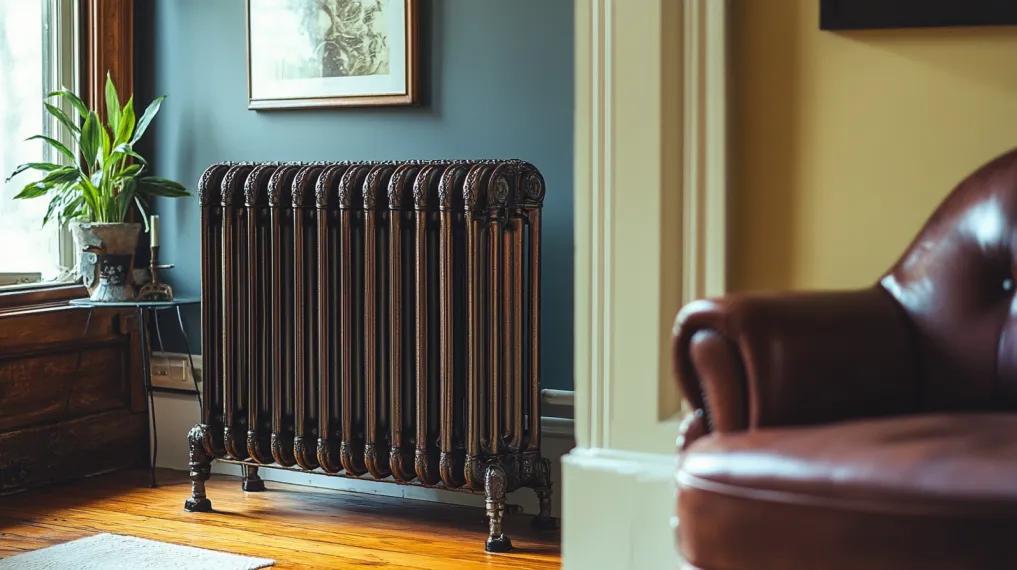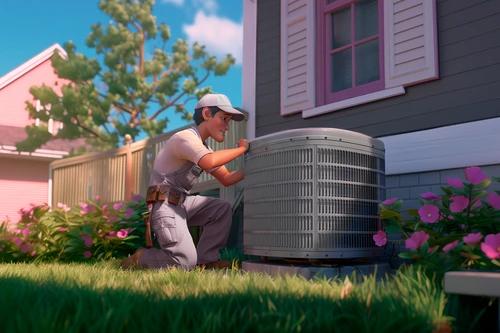A Guide to Boiler Replacement Costs

Replacing an old or inefficient boiler is a big home improvement investment, but it can lead to improved energy efficiency, lower utility bills, and more comfortable living spaces. To help you better navigate the buying process, HVAC.com answers the question, “how much does a new boiler cost,” and explains the factors that influence pricing.
How Much Is a New Boiler?
On average, homeowners can expect to pay between $3,500 and $8,000 for a new boiler installation. The cost of a new boiler can vary widely depending on several factors, such as the type of boiler, its efficiency rating, and the specifics of your home.
Standard models are generally more affordable, while high-efficiency or advanced systems require a larger upfront investment due to their sophisticated technology and installation requirements.
Factors Impacting Your New Boiler Cost
When it comes to the cost of a new boiler installation, the following factors all contribute to the total price you’ll pay:
1. Boiler Type and Fuel Source
The type of boiler and its fuel source significantly influence the overall cost. Here’s how they compare:
- New Gas Boiler Cost: Natural gas boilers are typically the most cost-effective option for homes with access to a gas line. They offer a good balance of efficiency and affordability.
- Oil Boiler Cost: Oil boilers tend to be more costly than gas boilers, both in terms of installation and ongoing fuel expenses, but are a good choice for rural areas without gas availability.
- Electric Boiler Cost: Electric boilers generally have lower upfront costs but higher operational costs in areas with expensive electricity rates. They’re best suited for smaller spaces or homes with limited heating demands.
- High-Efficiency Boiler Cost: Across all fuel types, high-efficiency models cost more initially due to advanced technology, but can result in greater long-term energy savings.
Each type has its advantages and considerations, so the best choice depends on your home’s infrastructure, heating needs, and savings goals.
2. Boiler Size and Output
The size of your boiler, measured in BTUs (British Thermal Units), determines its capacity to heat your home. Larger homes or those with higher heating demands will require a bigger boiler, which increases the price.
- Small Homes (Up to 1,500 sq. ft.): Boilers with a lower BTU output are sufficient for smaller homes with minimal heating demands.
- Medium-Sized Homes (1,500–2,500 sq. ft.): A mid-range BTU output is typically required to maintain consistent comfort in moderately sized homes.
- Large Homes (2,500–4,000 sq. ft.): Larger homes need a boiler with a higher BTU capacity to evenly heat multiple rooms or zones.
- Extra-Large Homes or Multi-Unit Buildings (Over 4,000 sq. ft.): A boiler with a very high BTU output, or even multiple boilers, may be necessary to meet the significant heating demands of these spaces.
Choosing the right size ensures that your boiler operates efficiently without overworking or wasting energy. An HVAC professional can perform a heat load calculation to determine the exact size you need.
3. Efficiency Rating
High-efficiency boilers can reduce energy consumption and lower utility bills, but they come with a higher upfront cost. Models with an AFUE (Annual Fuel Utilization Efficiency) rating above 90% are typically more expensive than standard options.
Condensing boilers are the most efficient option, and more expensive to install. Unlike standard boilers, condensing models extract additional heat from exhaust gasses. This process requires specialized components that increase the cost of a new boiler installation, such as a secondary heat exchanger, corrosion-resistant materials, and drainage lines to handle the condensation.
4. Complexity of Installation
A straightforward replacement in the same location is more affordable than a complex installation that requires relocating the boiler or modifying your home’s infrastructure. Expect to pay more if:
- Your home’s pipes and radiators also need to be replaced.
- Additional plumbing work is needed.
- Venting or flue systems must be upgraded.
- Your home requires structural changes to accommodate the boiler.
How to Save on Your New Boiler Installation
Replacing a boiler is a significant expense, but there are ways to make the process more affordable:
Shop Around for Quotes
Get multiple quotes from certified HVAC contractors to compare boiler replacement costs. Look for professionals with good reviews and experience installing the specific type of boiler you need. HVAC.com can provide you with a quote and connect you with a professional HVAC technician in your area.
Choose the Right Time
Scheduling your new boiler installation during the off-season (spring or fall) may reduce costs since HVAC professionals tend to be less busy during these times.
Look Into Financing Options
Many HVAC companies offer financing plans that allow you to spread the new boiler cost over several months or years.
Explore Rebates and Incentives
High-efficiency boilers often qualify for rebates, as well as tax credits. Check with your local utility provider and tax preparer to see if your new boiler installation qualifies you for any incentives.


